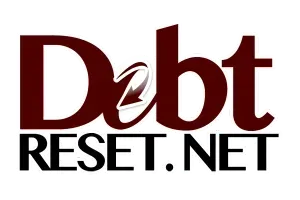Learn More and FAQ
Understanding Chapter 7 Bankruptcy

Got Questions?
We're Here to Help.
We understand filing for bankruptcy is a big decision and not one that should be taken lightly.
Guy Harvey Holman, PLLC is here to guide you through this process and ensure you have the information you need to make informed decisions about your financial future.
If you would rather speak to us over the phone or in person, click the link below. We are happy to assist you.
Got Questions? We're Here to Help.
We understand filing for bankruptcy is a big decision and not one that should be taken lightly.
Guy Harvey Holman, PLLC is here to guide you through this process and ensure you have the information you need to make informed decisions about your financial future.
If you would rather speak to us over the phone or in person, click the link below. We are happy to assist you.
General Questions
PLEASE NOTE: Any information you obtain on this site or this page is not, nor is it intended to be, legal advice. You should consult an attorney for advice regarding your individual situation. We invite you to contact us and welcome your calls, letters and emails. Contacting us does not create an attorney-client relationship. Please do not send any confidential information to us until such time as an attorney-client relationship has been established.
-
What is Chapter 7 Bankruptcy?
Chapter 7 bankruptcy, often referred to as a "liquidation bankruptcy," is a legal process designed to eliminate most unsecured debts, while providing individuals with a fresh financial start. Every case is different, however typically in a Chapter 7 filing, a trustee is appointed to liquidate non-exempt assets, distributing the proceeds among creditors. The debtor is then released from most qualifying debts.
-
Who Qualifies for Chapter 7 Bankruptcy?
To qualify for Chapter 7 bankruptcy, individuals must pass the means test, which evaluates their income, expenses, and ability to repay debts. If your income falls below the median for your state or if you can demonstrate an inability to repay debts, you may be eligible for Chapter 7.
-
What Debts Can Be Discharged in Chapter 7?
Chapter 7 bankruptcy allows for the discharge of various unsecured debts, including credit card balances, medical bills, personal loans, and certain other financial obligations. However, certain debts such as child support, alimony, student loans, and certain tax debts, may not be dischargeable.
-
How Long Does Chapter 7 Bankruptcy Take?
It is a case by case basis and the timeline for Chapter 7 bankruptcy varies, but the process typically takes about three to six months from filing to discharge. Factors such as the complexity of your case, court schedules, and any potential challenges can influence the duration.
-
Will I Lose All My Assets in Chapter 7?
While Chapter 7 involves liquidation of non-exempt assets, many individuals can retain essential assets through exemptions provided by bankruptcy law. Exempt assets may include a primary residence, a vehicle, personal belongings, and other necessary items. Our goal is to help you maximize the protection of your assets within the legal framework.
-
How Does Chapter 7 Affect My Credit?
Bankruptcy discharged under Chapter 7 of the U.S. Bankruptcy Code will remain on a credit report for 10 years from the filing date of the bankruptcy.
-
Can I File Chapter 7 Bankruptcy Again?
Individuals are generally eligible to file Chapter 7 again after eight years from the date of a previous Chapter 7 discharge. If you have previously filed for Chapter 13 bankruptcy, you may be eligible for Chapter 7 after four years.
-
Is Credit Counseling Required for Filing Bankruptcy?
Yes, credit counseling is a mandatory step before filing for bankruptcy. This counseling session aims to provide you with information and resources to assess your financial situation and explore alternatives to bankruptcy. The session can be completed online or over the phone with an approved credit counseling agency.
-
How Can Guy Harvey Holman, PLLC Help?
Our experienced bankruptcy attorneys at Guy Harvey Holman, PLLC are dedicated to guiding you through the Chapter 7 bankruptcy process. We provide comprehensive legal support, from evaluating your eligibility, to representing you in court if needed, and ensuring that you understand your rights and options at every step.
-
What is the Right of Redemption?
The right of redemption is an important right that debtors can exercise against secured creditors in a Chapter 7 bankruptcy. It involves redeeming certain personal property by paying the lienholder the fair market value of the property as opposed to the lien amount. This right becomes very useful in circumstances where the debtor has negative equity in the item (commonly known as being upside-down).
-
What is a Reaffirmation Agreement?
Reaffirmation in essence is a promise to pay a debt despite its discharge, which effectively waives the benefits of discharge as to that particular debt. Reaffirmation is rarely a good idea and should only be utilized in exceptional circumstances.
-
Are IRS Taxes Dischargeable in Bankruptcy?
If the tax owed is from a tax period more than three years ago and the tax was assessed more than 240 days before the filing of the bankruptcy petition and the IRS has not yet perfected a tax lien, then the tax is generally dischargeable.
